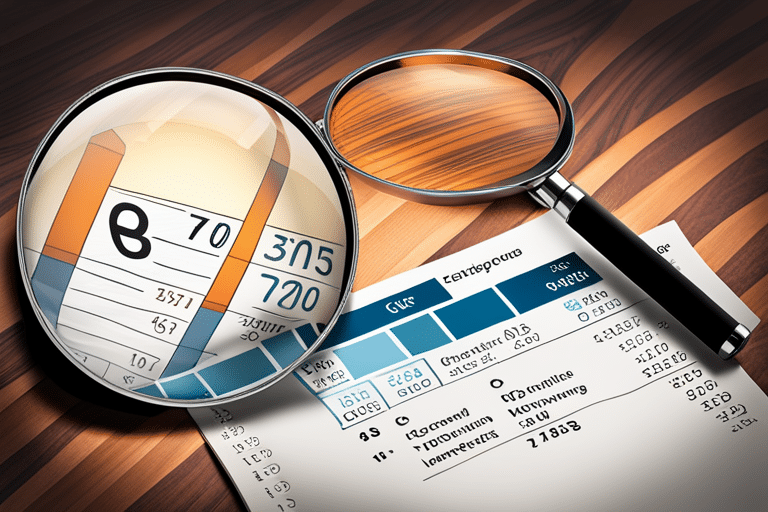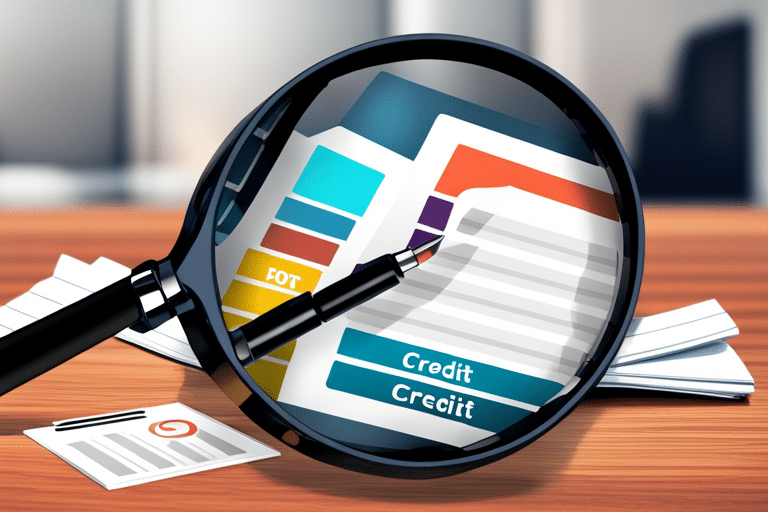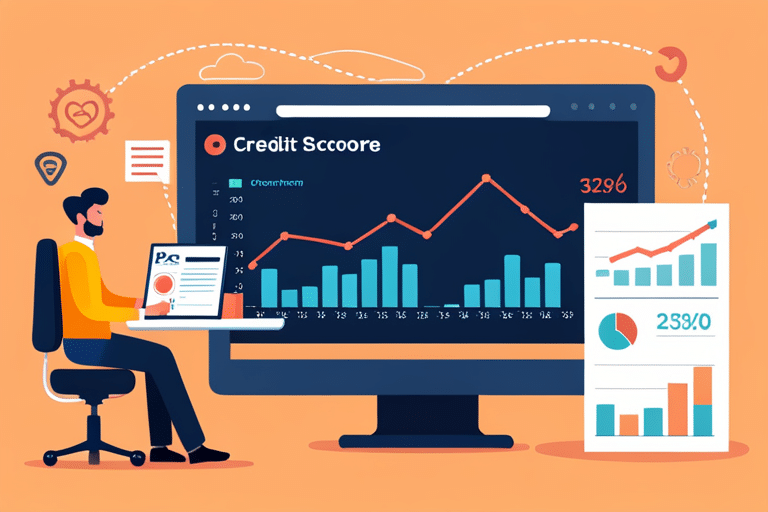Have you ever felt like your credit score is a secret code that only the financial wizards can decipher? Well, fear not, my friend! Let me introduce you to the unsung heroes of the credit world – the credit bureaus.
These magical entities collect and store your credit information, transforming it into a three-digit number that holds immense power over your financial life. Think of them as the gatekeepers of your loan eligibility, working tirelessly behind the scenes to determine your creditworthiness.
In this article, we’ll unravel their secrets and discover how they can help improve your credit score. Get ready for a journey into the mystical realm of credit bureaus!
Key Takeaways
- Credit bureaus determine your credit score
- They play a crucial role in managing your financial life
- Factors like payment history and credit utilization affect your credit score
- Consistently making payments on time improves your credit score
The Importance of Credit Bureaus in Your Financial Life

Credit bureaus play a crucial role in determining your credit score and are essential in managing your financial life. They’re like the wise owls of the financial world, keeping watch over all your credit activities and making sure everything is hunky-dory.
Let’s talk about credit repair for a moment. You know those times when you accidentally missed a payment or had a little mishap with your credit? Well, credit bureaus are here to help! They keep track of all your credit history, both good and bad. When you’re ready to repair your credit, they provide lenders with updated information that shows how responsible you’ve become.
But their importance doesn’t stop there! Credit bureaus also play a vital role in protecting you from identity theft. In this modern age where sneaky thieves lurk around every corner of the internet, it’s comforting to know that someone has got your back. Credit bureaus monitor your accounts for any suspicious activity and quickly alert you if something seems fishy. It’s like having a superhero sidekick who protects your finances while you focus on being fabulous!
Now that we understand the importance of these magical creatures called credit bureaus in both credit repair and identity theft protection, let’s dive into how they collect and store all this valuable information. It’s quite fascinating, really!
How Credit Bureaus Collect and Store Your Credit Information

When it comes to collecting and storing your credit information, you might be wondering how credit bureaus go about doing it. Well, my friend, let me take you on a whimsical journey into the world of credit bureau regulations and privacy!
Picture this: a bustling office filled with diligent elves (I mean, employees) who work tirelessly to gather all your credit data. These little elves are known as credit bureaus, and they have a big responsibility on their hands. They collect information from various sources like banks, lenders, and even Santa’s secret financial workshop.
Once the information is gathered, it is stored in a magical vault protected by an army of fire-breathing dragons (okay fine, I may have exaggerated there). But rest assured that your personal information is kept secure through strict credit bureau regulations. These regulations ensure that only authorized individuals can access your data – no sneaky goblins allowed!
Now you might be thinking: ‘But what about my privacy?’ Fear not! Credit bureaus understand the importance of keeping your personal details under lock and key. They follow stringent protocols to safeguard your information from falling into the wrong hands. Think of them as trusty knights protecting your castle from any potential invaders.
So next time you ponder over how credit bureaus collect and store your credit information, remember the hardworking elves diligently following credit bureau regulations to keep everything safe and sound. It’s like having a team of fairy godmothers looking out for you in the realm of finance!
Understanding Credit Scores and Their Significance

Take a moment to consider the importance of understanding your credit score and how it impacts your financial life. Ah, credit scores! Those magical numbers that have the power to make or break your dreams of owning a unicorn-shaped mansion. But fear not, dear master of credit mastery, for I am here to guide you through this whimsical journey.
Let’s start with the basics: Your credit score is like a report card for your financial health. It’s a number that tells lenders how likely you are to pay back borrowed money. The higher the number, the more trustworthy you appear!
Now, what factors affect this mystical number? Well, my friend, there are several things at play here. Payment history is one major factor – late payments can send your score plummeting faster than a rollercoaster ride. Credit utilization comes into play too; if you’re maxing out those shiny plastic cards, it might raise some eyebrows.
But wait! There’s more! Credit mix (the types of accounts you have) and length of credit history also contribute to this numerical evaluation of your financial prowess. And let’s not forget about new credit inquiries – too many in a short span can give off desperate vibes.
Now that we’ve covered the basics of credit score factors, let me remind you of another crucial element: accuracy in your credit report. Yes, my friend, just like unicorns and leprechauns, errors can exist in these reports too! So be vigilant and regularly check for any inaccuracies that may affect your precious score.
Factors Considered by Credit Bureaus When Calculating Your Credit Score

So, you’re curious about what factors those sneaky credit bureaus take into account when calculating your credit score? Well, let me tell you, my friend!
They’ve got their beady little eyes on three key points:
- Your payment history (did you pay that bill on time or were you busy sipping margaritas on a beach?)
- Your utilization and credit limits (how much of your available credit are you actually using?)
- The length of your credit history (have you been in this game for a hot minute or are you just a newbie?)
Ready to dive into the world of credit scores? Let’s go!
Impact of Payment History
To improve your credit score, make sure you’ve been consistently making your payments on time. Your payment patterns play a crucial role in determining your creditworthiness. Here’s what you need to know:
-
Credit bureau reporting: The credit bureaus (Equifax, Experian, and TransUnion) collect information about your payment history from lenders and creditors.
-
On-time payments: Making all your payments on time shows that you are responsible and can be trusted with credit.
-
Late payments: Consistently missing due dates can have a negative impact on your credit score.
-
Payment frequency: Regularly paying off balances or making multiple smaller payments throughout the month demonstrates financial stability.
Utilization and Credit Limits
Paying attention to your credit utilization and staying within your credit limits is like playing a game of balance on a tightrope. It’s all about finding the sweet spot between using your credit wisely and not going overboard. Think of it as a dance with numbers, where you need to keep an eye on both sides of the equation.
When it comes to credit utilization, the key is to use just enough without maxing out your cards. You want to show that you can handle credit responsibly, so aim for a utilization rate below 30%. Keeping it low means you’re not relying too heavily on borrowed money, which gives lenders confidence in your ability to repay.
Credit limits are like guardrails, guiding you towards financial safety. They set boundaries for how much debt you can take on. Remember, having high credit limits doesn’t mean you should max them out. It’s better to have some breathing room and leave space for unexpected expenses or emergencies.
Length of Credit History
Your length of credit history, or how long you’ve had credit accounts open, plays a significant role in determining your creditworthiness. Think of it as the story of your financial journey, told through the lens of time.
So grab your quill and let’s dive into this whimsical tale!
-
The Ancient Account: Your first credit card from college, weathered by countless late-night pizza orders.
-
The Reliable Road: A car loan that carried you safely on many adventures across the country.
-
The Dreamy Dwelling: That mortgage for your cozy little cottage where memories were made and dreams were spun.
-
The Prosperous Plastic: The shiny new rewards card that helped you indulge in life’s little luxuries.
The Role of Credit Bureaus in Determining Your Loan Eligibility

Ah, loan eligibility! A topic that can make even the most level-headed person break out in a cold sweat. But fear not, my friend, for credit bureaus are here to save the day (or crush your dreams, depending on how you look at it).
These sneaky little creatures play a big role in determining whether or not you’re eligible for that shiny new loan you’ve been eyeing. So let’s dive into the magical world of credit bureau impact and loan eligibility factors and see if we can make some sense of it all, shall we?
Credit Bureau’s Impact
The credit bureau’s impact on your credit score can be significant. It’s like having a bunch of magical creatures whispering secrets about your financial history to lenders. But don’t worry, these creatures are bound by strict regulations (like little credit guardians) to ensure fairness and accuracy in their reporting.
However, sometimes these mischievous creatures can fall victim to data breaches, causing chaos and confusion for everyone involved. So it’s important to keep an eye out for any signs of unauthorized access or strange activities on your credit report.
Remember, the better the information they have, the higher your credit score will soar! And with that said, let’s dive into the next section about loan eligibility factors and how they work their magic alongside our friendly credit bureau critters.
SUBSEQUENT SECTION: ‘Loan Eligibility Factors’
Loan Eligibility Factors?
When applying for a loan, it’s crucial to understand the factors that lenders consider in order to determine your eligibility.
Think of it like a magical recipe where the ingredients are your financial habits.
One important ingredient is your debt-to-income ratio. This is like the balance between how much money you owe versus how much money you make. Lenders want to see that you have enough income to comfortably handle your debts.
Another key ingredient is your credit utilization rate, which measures how much of your available credit you’re using. It’s like trying not to hog all the ice cream at a party – lenders prefer if you only use a small portion of what’s available to you.
How Credit Bureaus Assist Lenders in Assessing Your Creditworthiness

To determine your creditworthiness, lenders rely on credit bureaus to assess your financial history and provide them with a credit score. These credit bureaus play a crucial role in helping lenders make informed decisions about whether or not to approve your loan application.
Let’s take a whimsical journey into the world of credit bureaus and see how they assist lenders in assessing your creditworthiness.
Here are the ways credit bureaus help lenders evaluate your financial history:
-
Credit Reports: Credit bureaus collect information from various sources, such as banks, creditors, and utility companies, to create detailed reports of your past payment behavior. These reports give lenders an overview of how you have managed your debts and obligations over time.
-
Credit Scores: Using complex algorithms (they’re like magical spells!), credit bureaus analyze the data in your credit report to generate a three-digit number known as your credit score. This mystical number helps lenders assess the level of risk you pose as a borrower.
-
Risk Assessment: Lenders need to gauge how likely it is that you will repay their loans on time. Credit bureaus assist in this by providing risk assessment tools based on historical data. They use enchanted formulas to predict whether you’ll be responsible with borrowed money or if there’s a chance things might get hairy.
-
Loan Approvals: Armed with all this enchanting information, lenders can now make more informed decisions about approving loans. They can assess if granting you that shiny new loan sword won’t result in them being left high and dry.
Steps to Improve Your Credit Score With the Help of Credit Bureaus

So, you’ve learned how credit bureaus help lenders determine your creditworthiness. Now, let’s dive into some delightful strategies to improve your credit score with the help of these magical credit bureaus!
First things first, make sure you pay your bills on time. Late payments can be as pesky as a mischievous gnome hiding in your garden! Credit bureaus keep track of your payment history, so it’s important to stay on top of those due dates.
Next, keep those balances low on your credit cards. It’s like trying not to eat too much cake at a birthday party – moderation is key! High balances can weigh down your credit score and make it harder for you to fly high.
Another enchanting strategy is to open new lines of credit responsibly. Just like adding new friends to your circle, adding new accounts can boost the diversity of your credit mix. But remember, don’t go overboard or it might look like you’re juggling too many responsibilities!
Speaking of responsibilities, be sure to handle any outstanding debts with care. If you have any unpaid balances or collections lurking in the shadows, tackle them head-on like a valiant knight facing a fearsome dragon! Set up payment plans and watch those debts disappear.
Lastly, regularly check your credit report for any errors or inaccuracies that may be holding you back from soaring higher. These reports are like treasure maps that guide you towards better financial freedom!
Frequently Asked Questions
What Are Some Common Mistakes or Errors That Can Appear on a Credit Report?
You might be surprised by the common mistakes on your credit report. But fear not! The dispute process can help fix them. Stay vigilant and keep an eye on those sneaky errors!
Can Credit Bureaus Lower Your Credit Score?
Sure, credit bureaus can lower your credit score if you have high credit utilization. They assess how much of your available credit you’re using. Also, they work with credit card companies to gather and report information about your financial behavior.
How Long Does Negative Information Stay on Your Credit Report?
Negative information can stick around on your credit report for quite some time, affecting your credit score and overall creditworthiness. And watch out for any errors on your report, they can have a big impact too!
Do Credit Bureaus Have Access to Your Bank Account Information?
No worries, your bank account privacy is safe! Credit bureaus don’t have access to your bank account information. They gather data from other sources like lenders, creditors, and public records to determine your credit score. Keep on banking with peace of mind!
How Often Should You Check Your Credit Report for Accuracy?
When is the best time to check your credit report for accuracy, and how often should you do it? Well, my friend, it’s wise to review it regularly – at least once a year. Stay on top of that credit game!
Conclusion
So there you have it, my friend! Credit bureaus play a mighty role in shaping your credit score. They collect and store your financial info like squirrels gathering acorns for winter.
And those credit scores? Well, they’re like little badges of honor that lenders use to judge your trustworthiness. But fear not! With the help of these magical bureaus, you can turn things around and boost that score.
So go forth, my friend, take control of your credit destiny and watch as the world opens up for you!

